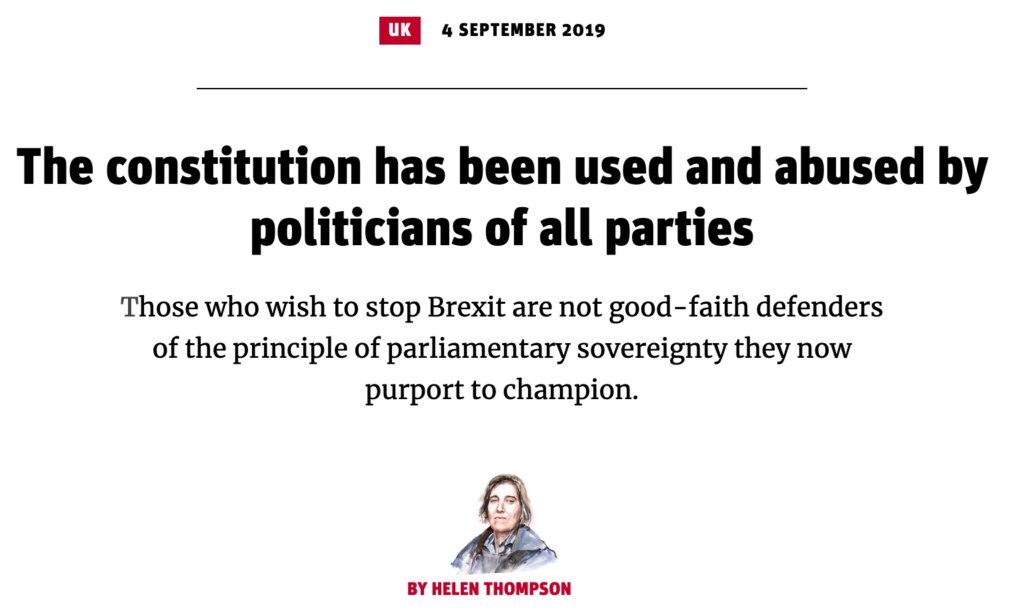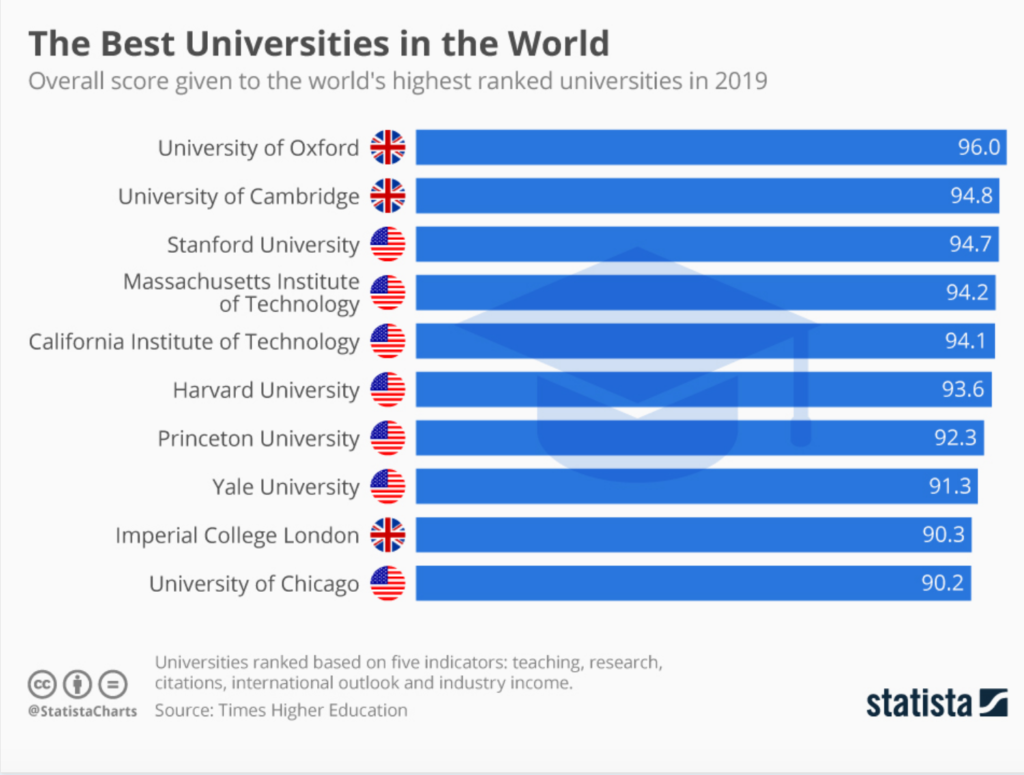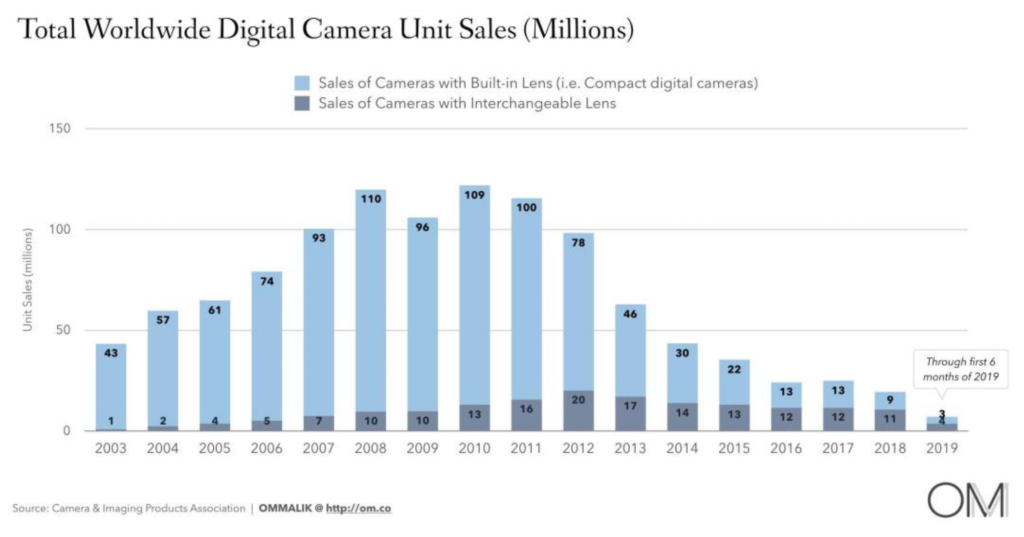Terrific — and disconcerting — New Statesman column by Helen Thompson. Her argument is that many of the opponents of Brexit in Parliament are doing so in bad faith.
This country’s accumulated constitutional customs ultimately uphold the idea that power rests on the consent of those who are governed. Any sober reflection on the UK’s history will show that overturning a referendum result before it has first been implemented would be a precipitous act. Consequently, members of parliament who ran for parties with a manifesto promise to implement the referendum result and who have since expended considerable effort to prevent Brexit are taking tremendous constitutional risks. Members of parliament who have passed laws purportedly to realise Brexit but in practice to buy time to thwart it are being similarly cavalier, as have those who – by signalling to the EU27 that parliament would obstruct no deal or prevent Brexit all together – have impeded the executive’s ability to negotiate an orderly withdrawal that parliament could accept.
That’s not to say that Boris Johnson is a constitutional saint either. But,
in terms of constitutional prudence, the government’s errors, illusions and inflammatory rhetoric do not compare with treating the referendum result as disposable. The referendum allowed voters to express a view on EU membership uninhibited by party voting habits or what anyone in parliament thought. That is what referendums offer, even if governments who pursue them hope voters will treat them as confidence votes. This one had been a long time coming. There was an issue about the UK’s consent to the EU that politicians had suppressed with referendum promises that were never realised.
It was a momentous decision when the House of Commons finally agreed to take the risk of asking the electorate whether it consented to the part of the constitution defined by EU membership. Parliament cannot, with any semblance of constitutional responsibility, now exercise judgement as if it did not.
The only weakness in this argument would emerge if the Referendum result were to be declared invalid because of distortions caused by the shenanigans of the two Leave campaigns. I’m pretty sure that both camps broke electoral laws, but in itself that doesn’t prove that the vote was invalid.







